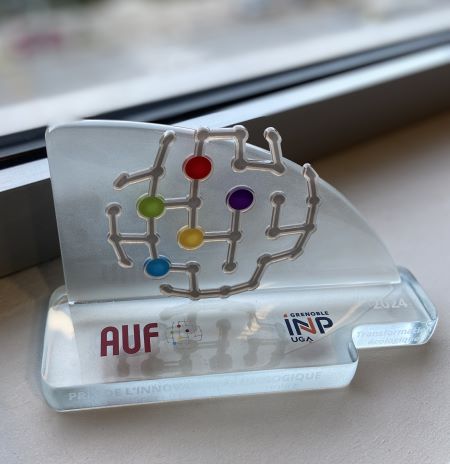
A drone capable of cleaning solar panels automatically. This is the ambitious goal of the PV Panel Cleaner project, designed by Grenoble INP – Ense³ in partnership with Saint Joseph University of Beirut. This project was designed as a solution to a practical need while also raising awareness among students of ecological challenges. It is an example of how innovation can serve the energy transition.
A technical and environmental challenge
In Lebanon, an increasing number of photovoltaic facilities are being set up in an effort to compensate for the inadequate electricity supply there, but solar panels are often in awkward locations such as on roofs that are difficult to access, on balconies or sloping walls. These panels have to be kept clean to ensure an efficient output. In practice however, this is often costly, risky or quite simply impractical. “I know someone who once fell from their balcony while trying to clean their solar panels” said Ahmad Hably, a lecturer at Grenoble INP – Ense³ and researcher at GIPSA-Lab.*
With this observation in mind, the goal of the PV Panel Cleaner project was to design a completely automatic drone, capable of cleaning the panels and adapting to any difficulties with regards to their location. “It’s not difficult to fly a drone”, says the researcher. “But getting it to fly on its own, to manage the variable quantity of water on-board, detect the panels and check they aren’t damaged, is a whole other ball game.”
Educational and cross-disciplinary innovation
Far from being a simple theoretical exercise, this project required a wide range of skills in robotics, mechanics and programming. Under the supervision of Ahmad Hably and Hadi Kanaan from Saint Joseph University, French and Lebanese students worked together on every phase of the project, from modelling to simulation, design and testing. This cross-disciplinary and international approach meant that everyone could benefit from a unique experience, combining technical expertise and remote project management.
Besides the technical aspect, the project also introduces an ethical way of using drones. “Here we are showing that robotics can be beneficial to the environment and not only for military or industrial use. This is also a great opportunity to raise awareness among students of environmentally friendly technology.”
By carrying out an initial modelling phase, the teams were able to prove the feasibility and profitability of their concept. The next step is to build a prototype and carry out tests under real-life conditions. The 10,000 euros from the AUF Educational Innovation Prize will be put towards this. This financial support will also facilitate the organisation of internships to further develop the project and invite the Lebanese students to come to Grenoble.
The initial goal was to find a solution to the issue of cleaning solar panels in Lebanon, but Ahmad Hably is now looking to take this further. “The drone could be adapted to other uses, such as agriculture or assisting firefighters in difficult situations such as forest fires.” This is only the beginning...

*CNRS / Inria / UGA / Grenoble INP - UGA


